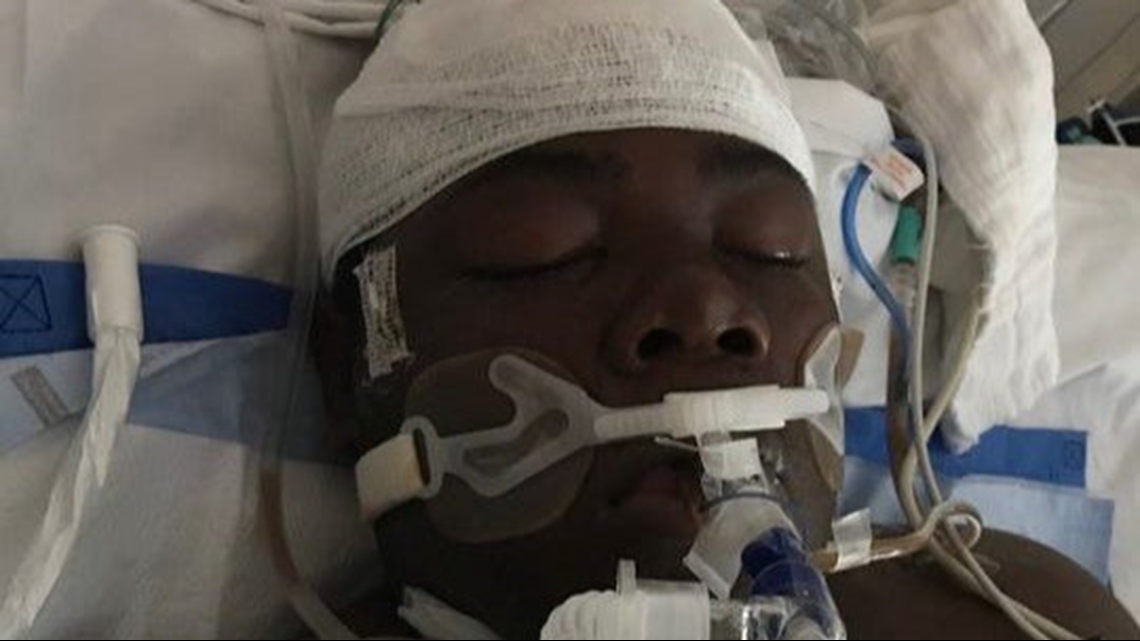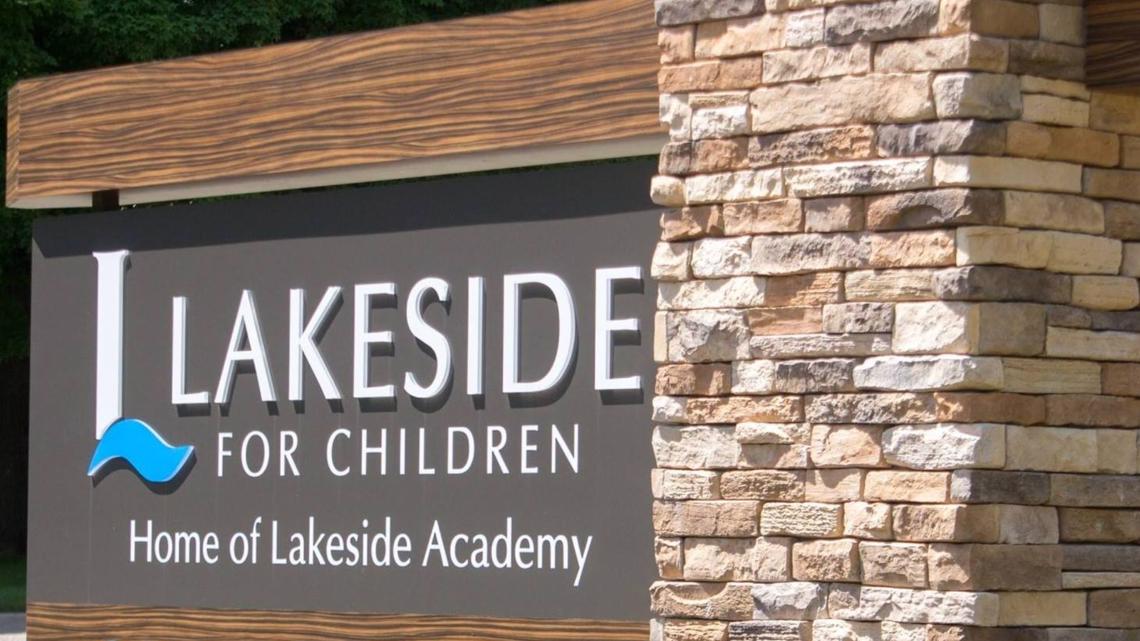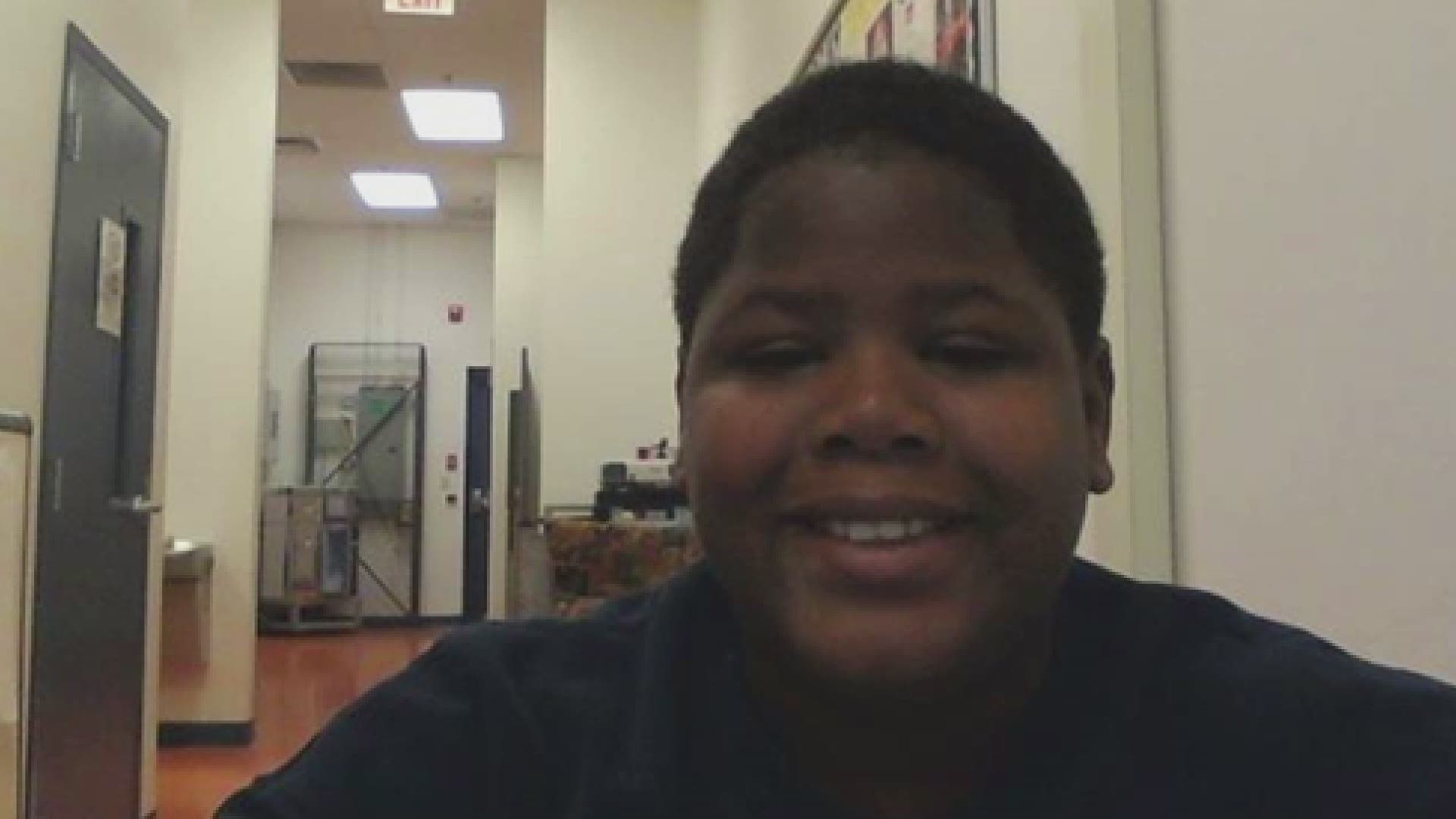A 16-year-old who lived at a Kalamazoo youth home died last month after staff members put their weight on the teenager during a 12-minute restraint, Michigan officials say. Nearly 30 hours later, Cornelius Fredericks died in the hospital after suffering cardiac arrest.
His death has prompted an investigation from the Michigan Department of Health and Human Services, a $100 million lawsuit and calls for criminal charges.
Monday, a Detroit civil rights law firm filed the lawsuit that claims Lakeside Academy and Sequel Youth & Family Services, the company that provides staffing for the home, have a history of "reckless and negligent" behavior.
"We're going to hold those accountable, the wrongdoers accountable," said Jon Marko, the attorney representing Fredericks' family. "We're going to get some comfort, some justice, some answers for the family. And we're going to make sure that we're going to do everything we can to bring about change at Sequel, certainly at Lakeside, and perhaps even on a national level to bring attention to these problems. Because Cornelius isn't the only one and he's not going to be the only one. And we need to make changes so that something like this never happens again."
The lawsuit also alleges that during the incident the Black teenager cried out "I can't breathe." Marko drew comparisons to the recent death of George Floyd who died in Minneapolis after a police officer kneeled on his neck for nearly nine minutes.
What happened to Cornelius Fredericks?
Fredericks had been a resident of Lakeside for two years after his mother died in her sleep at the age of 32, at which point he became a ward of the state. Marko said other family members were not in a position to help care for the boy who was described as a kid who liked playing jokes and pranks but was ultimately "known as a sweet boy."
Lakeside had contracts with the state to care for boys aged 11-17 in both cases of neglect or abuse and juvenile justice.
"Cornelius was not placed there because he was a troublemaker with the law or criminal convictions or violations of probation and parole. He just didn't have anyone who was able to care for him," Marko said during a Monday press briefing, noting this was a case of foster care.
On April 29, Fredericks threw bread at another kid and staff asked him to stop before restraining, state investigators found. Through video evidence and interviews with residents who were in the cafeteria, the state learned that seven staff members were involved in holding him to the ground for 12 minutes, including at least one who lay on his chest. State guidelines say only two or three adults should be involved in a restraint.
The lawsuit said a staff member was on Fredericks' chest for nearly 10 minutes, and the state's investigation determined the whole restraint lasted about 12 minutes.
Interviews revealed that restraints were common practice at Lakeside when a resident didn't listen to staff members. One resident confirmed that Fredericks said he couldn't breathe during the restraint, which state officials called "unsafe" and "excessive."
The state investigation said the restraint does not following state guidelines nor did it comply with Fredericks' treatment plan. Several staff members interviewed by the state health department said throwing food would not justify a restraint like the one utilized.
The health department investigation said no staff members tried to intervene, and after Fredericks was released, no one called 911 for 12 minutes even though he was "limp and unresponsive" and concerns were raised about his "breathing, coloring and pulse."
The state's review of video from the day found about 15 minutes after the restraint ended, a nurse started chest compressions and staff used an AED on Fredericks. After he was brought to the hospital, Fredericks died 30 hours later on May 1.
The nurse who was present during the incident and failed to immediately call for an ambulance was fired, the state health department said, as well as the seven staff members involved in the restraint.
The lawsuit also says Lakeside had been investigated for 30 licensing violations since 2016. It claims that after Fredericks was brought to the hospital, it was discovered the teen was also positive for COVID-19. Nearly 40 residents and nine staff members at the facility tested positive for the virus, the lawsuit says.
Additionally, Marko said after Fredericks was restrained, it unsettled the other residents who were living at the facility and he says some of the kids ran away. He also said tear gas was used on the residents to contain what Sequel calls an "uprising."
Marko said this was confirmed through his investigation into the facility.


Lakeside Academy and Sequel's history
Marko says that Fredericks' death was "preventable" and "foreseeable" because of a history of Lakeside's licensing violations and a "long history of documented problems" with Sequel's staffing services in other states.
The state's Division of Child Welfare Licensing started the investigation into Lakeside on April 29 after learning of Fredericks' death.
In addition to determining that the teen was improperly restrained, the department also discovered 10 recent licensing violations, including a failure to follow rules related to the restraint and discipline of residents. The state said Fredericks was also unsafely restrained by seven staff members in January for a period of more than 30 minutes, even though he stopped struggling after four minutes.
"The documented history and repeated investigations of defendants’ improper use of restraints on residents should have put the defendants on notice that change was needed," the lawsuit says.
Sequel operates youth behavioral facilities across the country, but Marko noted that they have a problematic history. Some of the youth housed at the Kalamazoo facility came from other states, whose governments started to move all their out-of-state youth back home following Fredericks' death.
A state senator in Oregon has been raising red flags about her state's foster care system, including Sequel, since late last year. State Sen. Sara Gelser said she visited an Illinois home where some Oregon children were living, and learned about improper restraints, according to Oregon Public Broadcasting. Gelser has since introduced legislation to limit Oregon from contracting with for-profit child care providers.


What's happened since Fredericks' death?
The Michigan Department of Health and Human Services wrapped up its investigation last week and recommended Lakeside's license be revoked. The state also then moved to end its contact with Lakeside.
In a statement, MDHHS said revoking the license of a child care facility is "rare" but is done when "necessary to protect children."
On Saturday, Gov. Gretchen Whitmer said Sequel Youth and Family Services, the company that provided staffing for Lakeside, can no longer provide services for licensed facilities in Michigan. She called Fredericks' death "senseless," "intolerable and heartbreaking."
JooYeun Chang, executive director of the MDHHS Children’s Services Agency, said in a statement this week that Fredericks' life "came needlessly to an end at the hands of those meant to care for him."
The state health department also announced after Fredericks' death it would change its policies to forbid the use of physical restraints at all of its licensed and contracted facilities.
"The staff was not qualified and should have never done to Cornelius what happened. It's just a sad indictment of the world that we're living in that it took the death of Cornelius for the state, and for others to be aware of this and to take action," Marko said.
The 125 residents who lived at Lakeside were placed in other settings.
"There's a lot of kids who've been abused and who have been mistreated. This should have never happened. But no one was listening, and now people are listening," said Marko.


What happens next?
Marko said now that the lawsuit has been filed and his firm has subpoena power to continue investigating Fredericks' death and the larger issues with Sequel. The lawsuit is seeking a jury trial, and Marko said it is a "substantial case."
Tenia Goshay, Fredericks' aunt, said her family just wants to understand why this happened to the teen.
"I'm pretty sure it could have been avoided. I just need answers and some justice for my nephew. We loved him very, very much. And we just need to know what happened," she said.
The Kalamazoo County Prosecutor's Office said it has been reviewing reports, records and videos from Lakeside alongside the MDHHS investigation. It said after the state health department issued its findings, they will make charging decisions.
MDHHS Director Robert Gordon issued a statement on Monday, saying that the department will change the system that allowed Fredericks' death.
“We are reviewing and reforming our policies for child caring institutions to address challenges before they become tragedies. We will cease to allow physical restraints like the ones that cost this young man his life. We have begun the process to revoke licensing for the facility where this youth died. And we are taking steps so that Sequel Youth and Family Services – the company that manages the facility where the young man died – will no longer provide services for facilities licensed by our department," the statement read.
Trial lawyer Geoffrey Fieger is working with Marko on the case. He urged prosecutors and the Michigan Attorney General Dana Nessel to issue charges against those responsible.
Monday, Sequel issued a statement on the lawsuit and Fredericks' death saying they acted quickly to terminate the staff involved and they have removed the former executive director of Lakeside.
"We have been in regular contact with law enforcement and state officials to help ensure justice is served and have accelerated the work that was already underway across our organization to move to a restraint-free model of care," the statement read in part.
Read the full lawsuit here:
More stories on 13 ON YOUR SIDE:
►Make it easy to keep up to date with more stories like this. Download the 13 ON YOUR SIDE app now.
Have a news tip? Email news@13onyourside.com, visit our Facebook page or Twitter. Subscribe to our YouTube channel.

